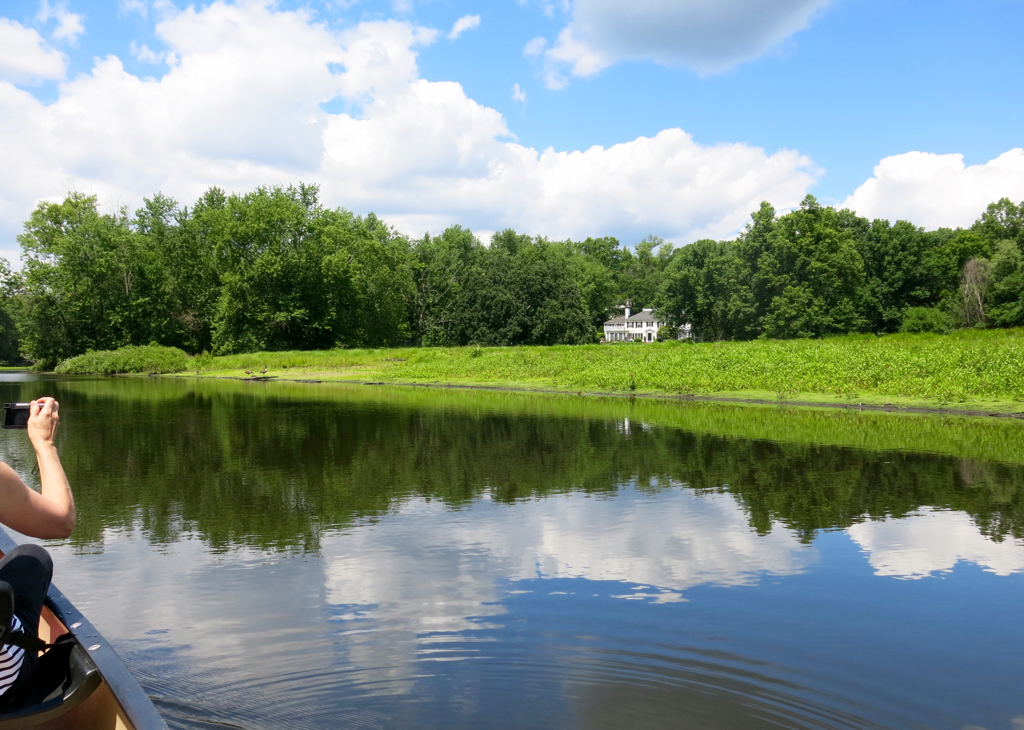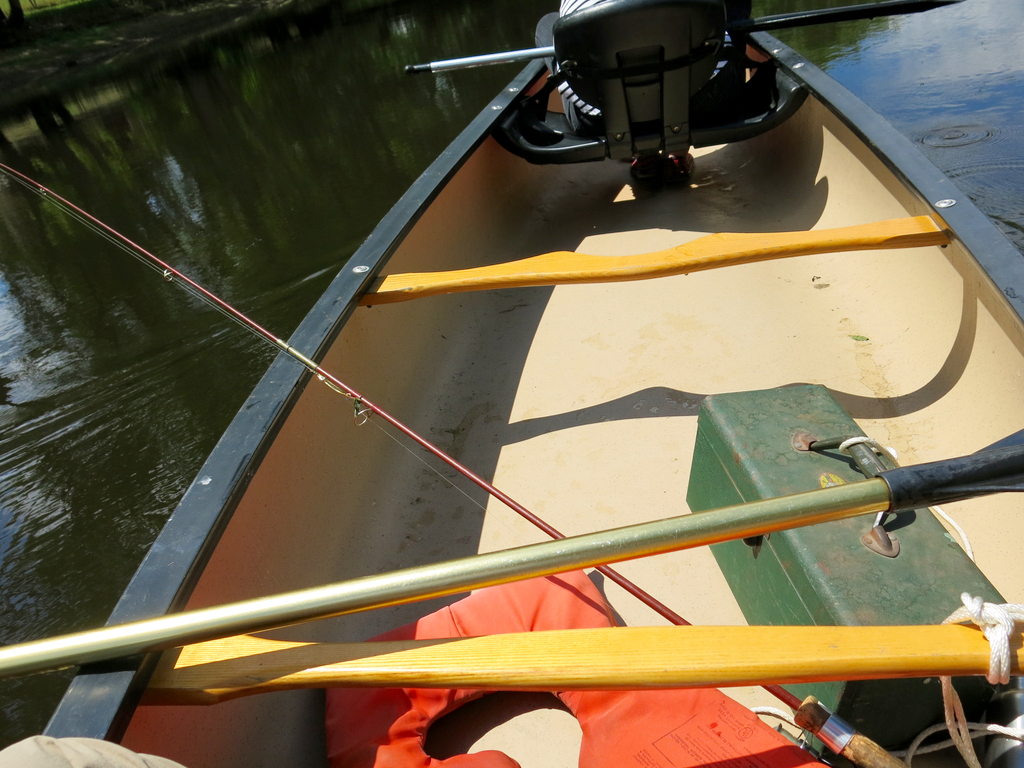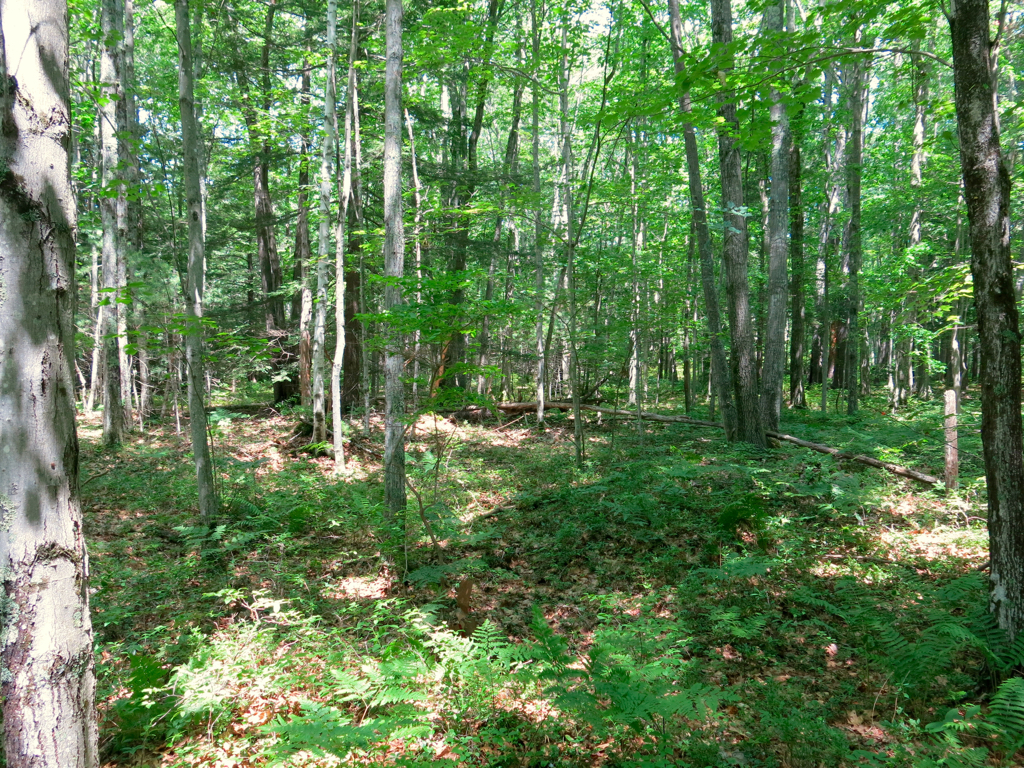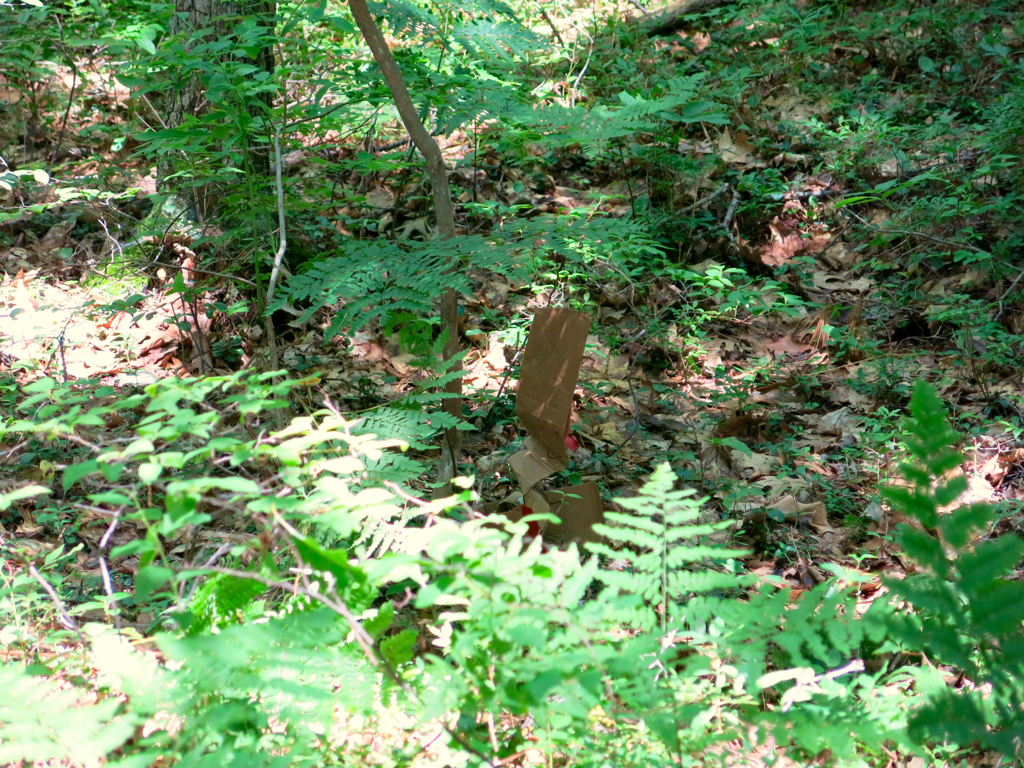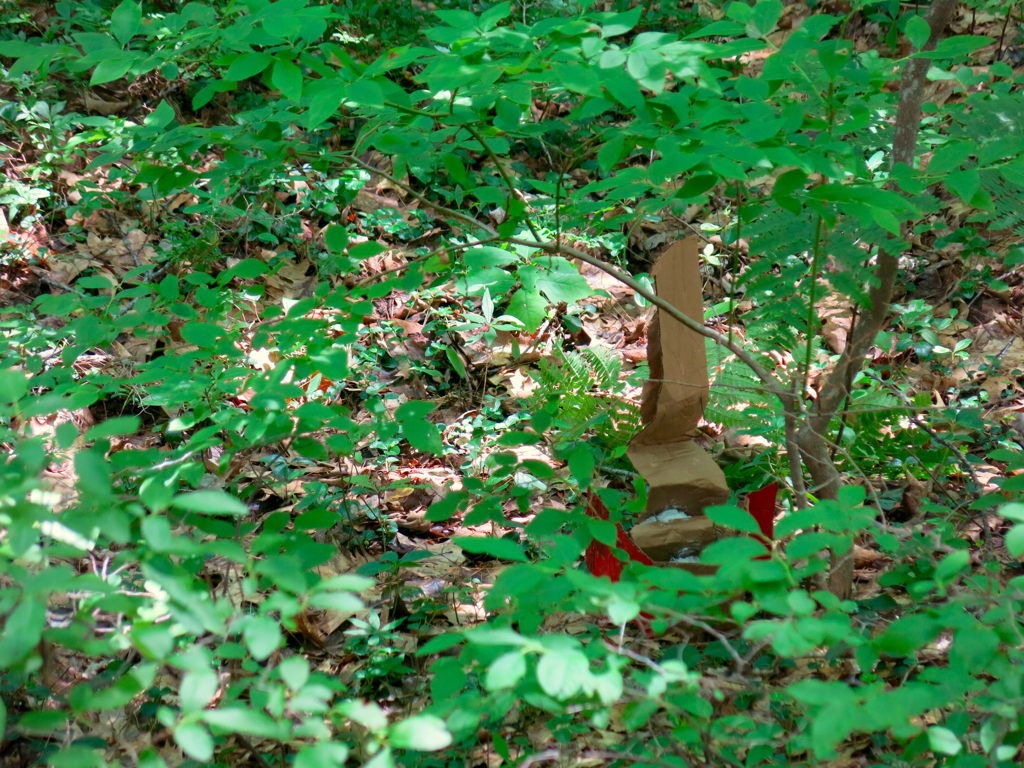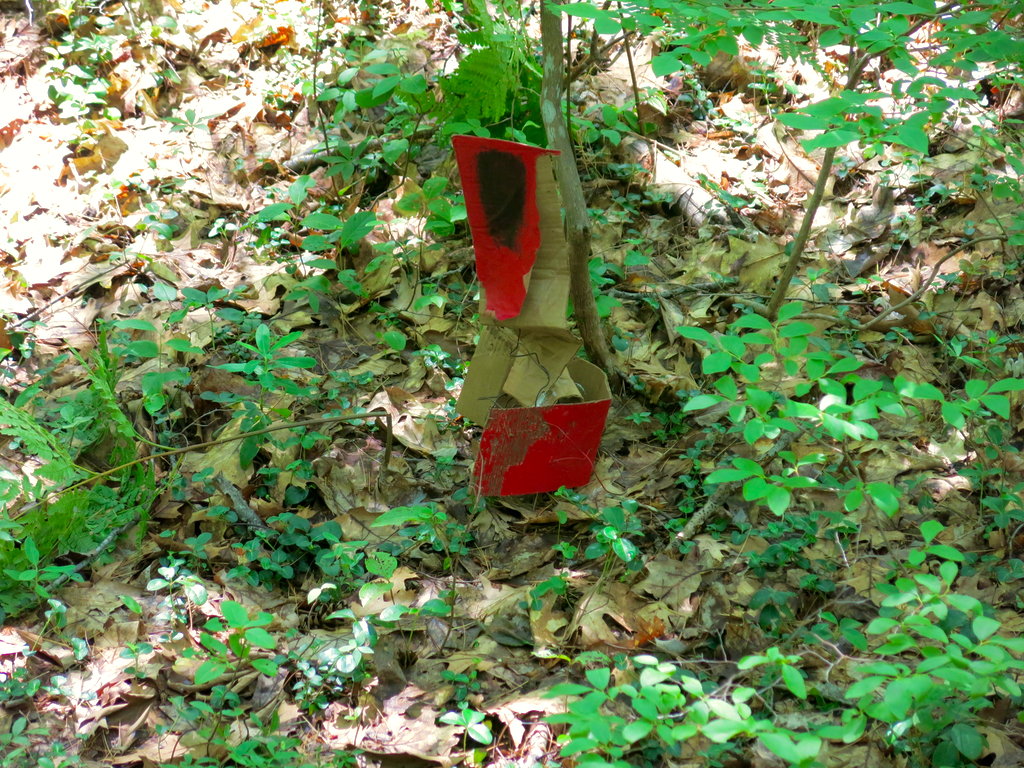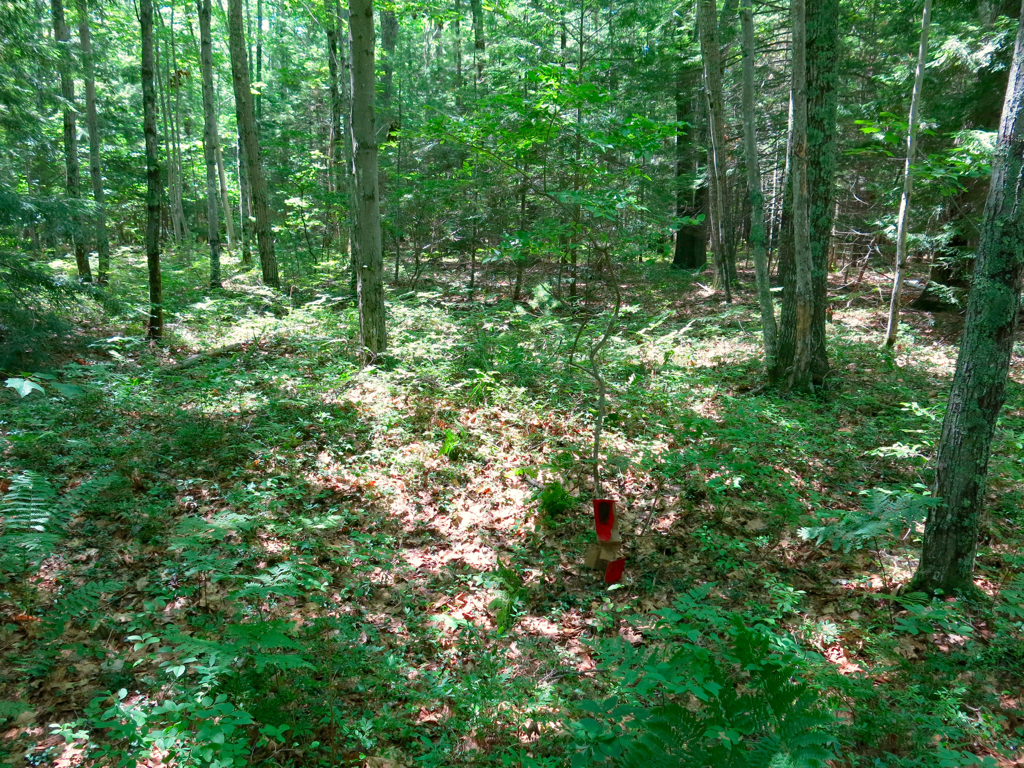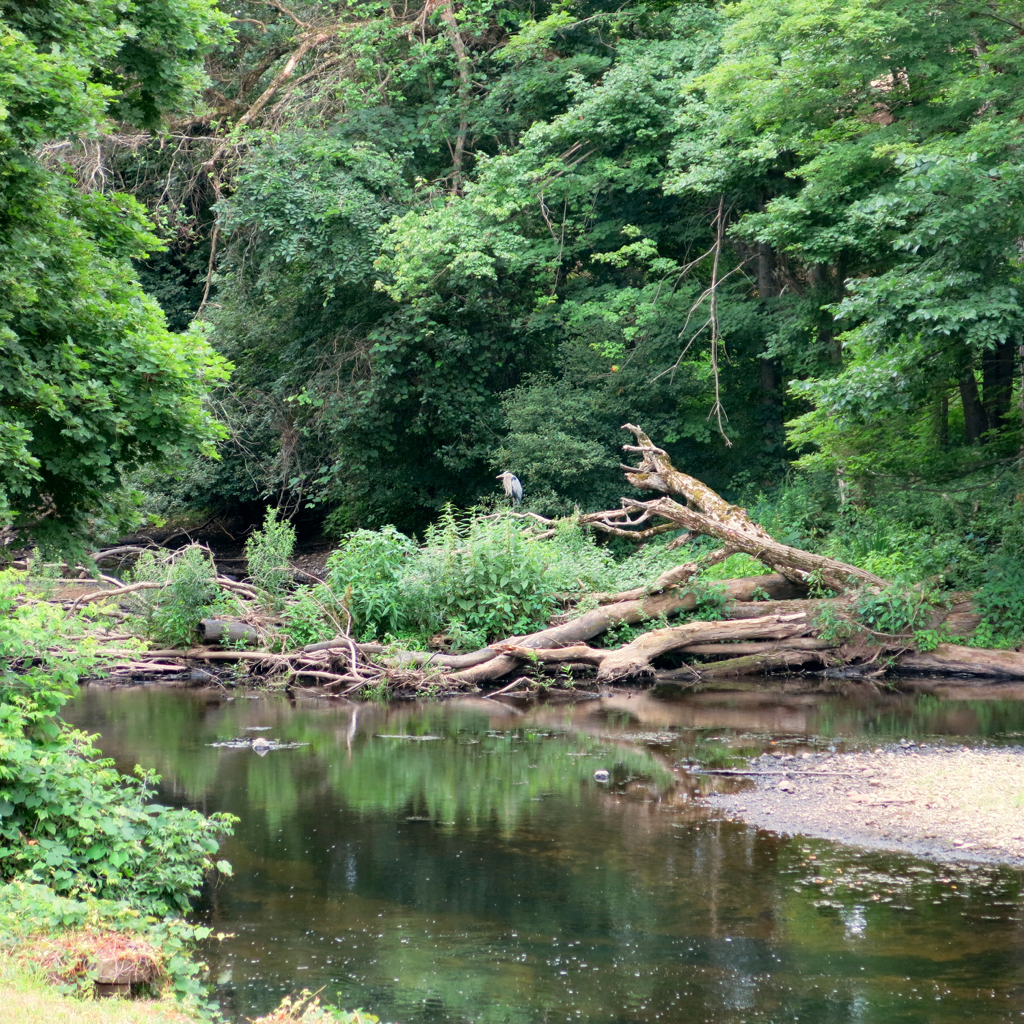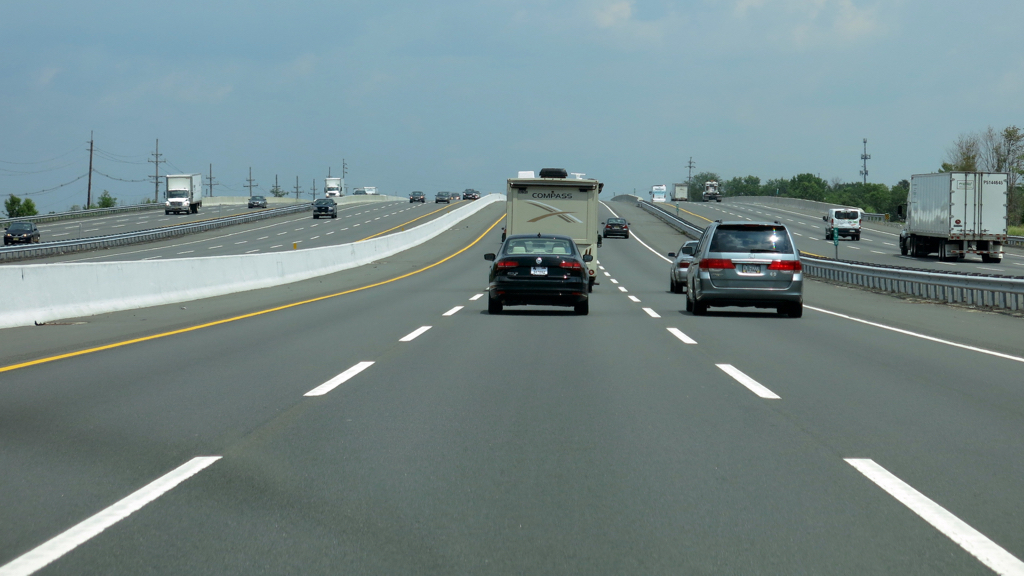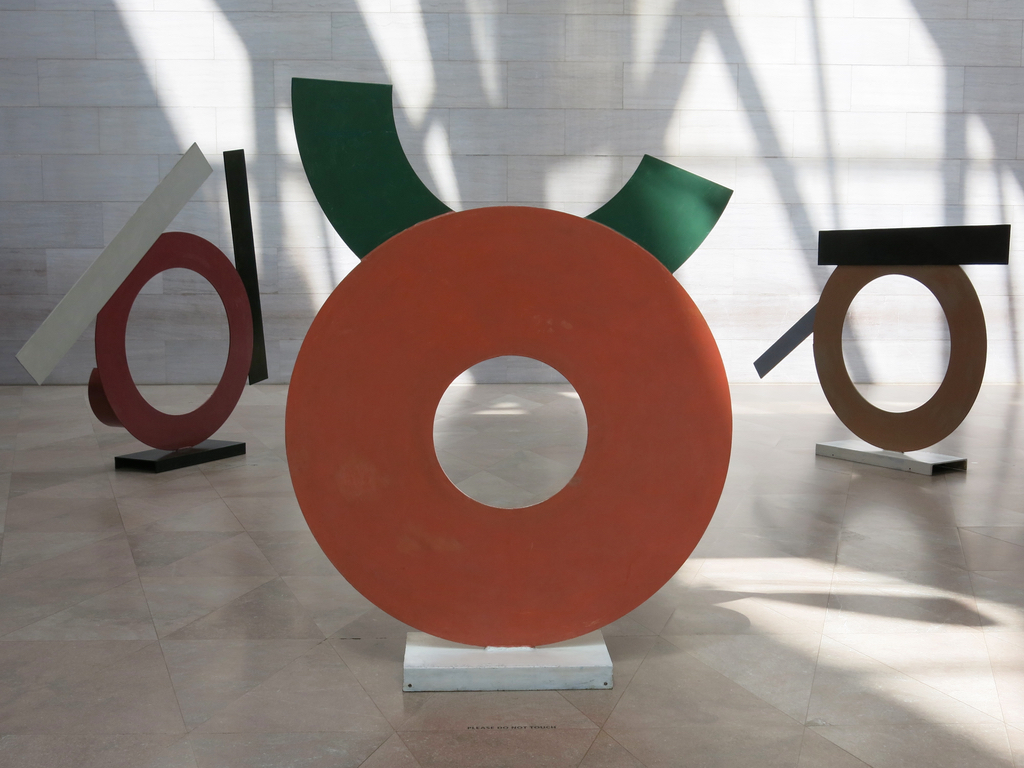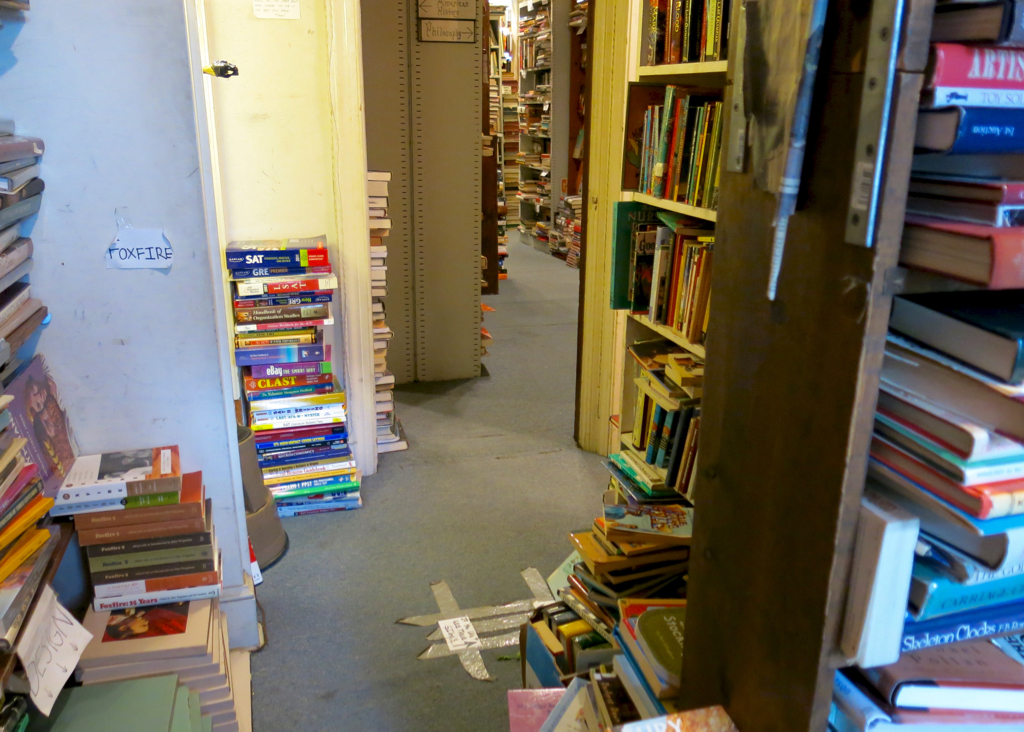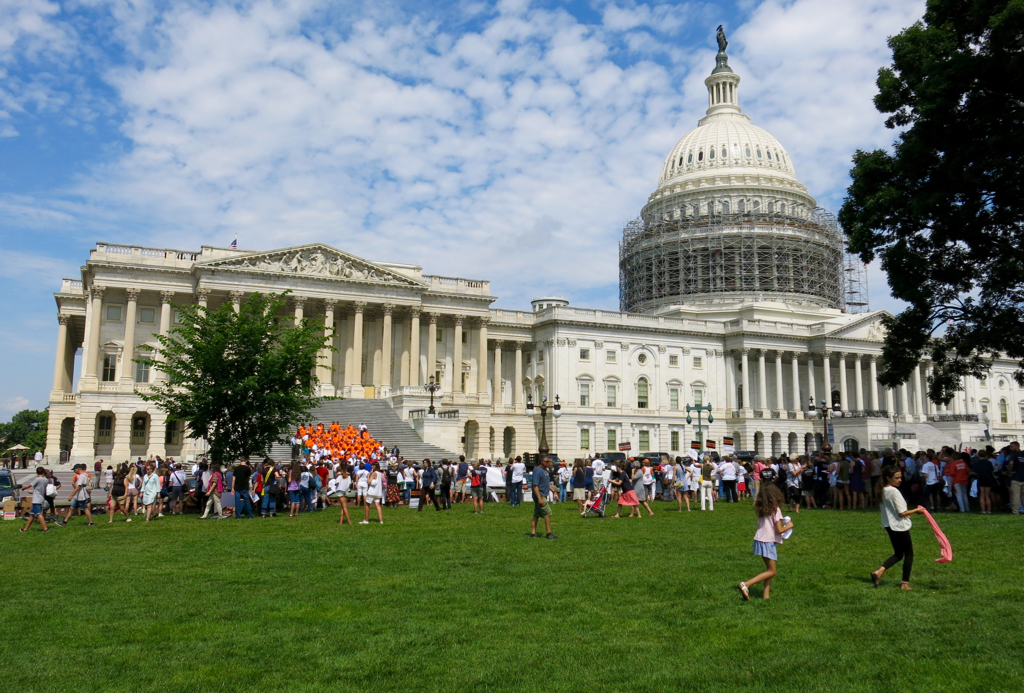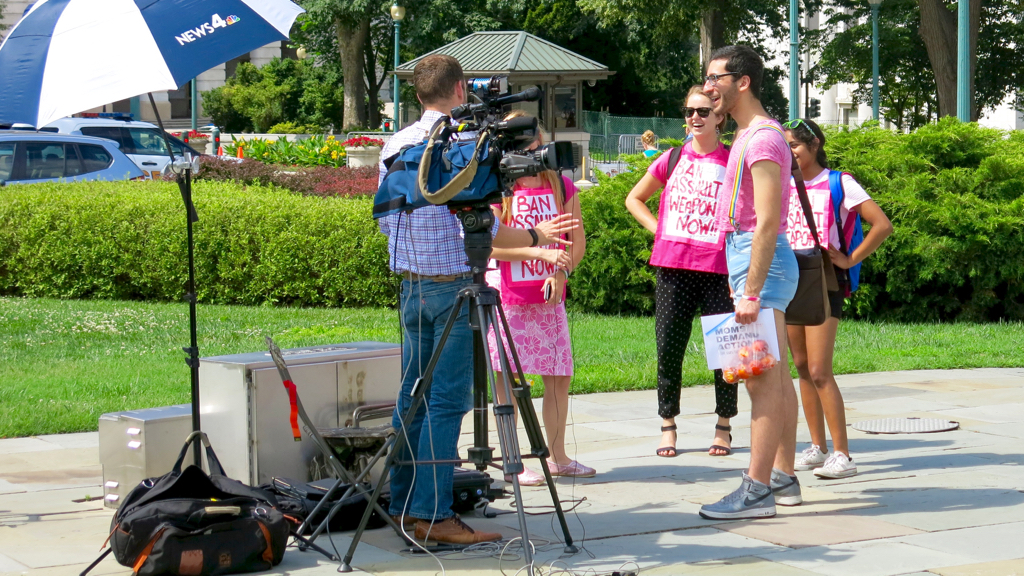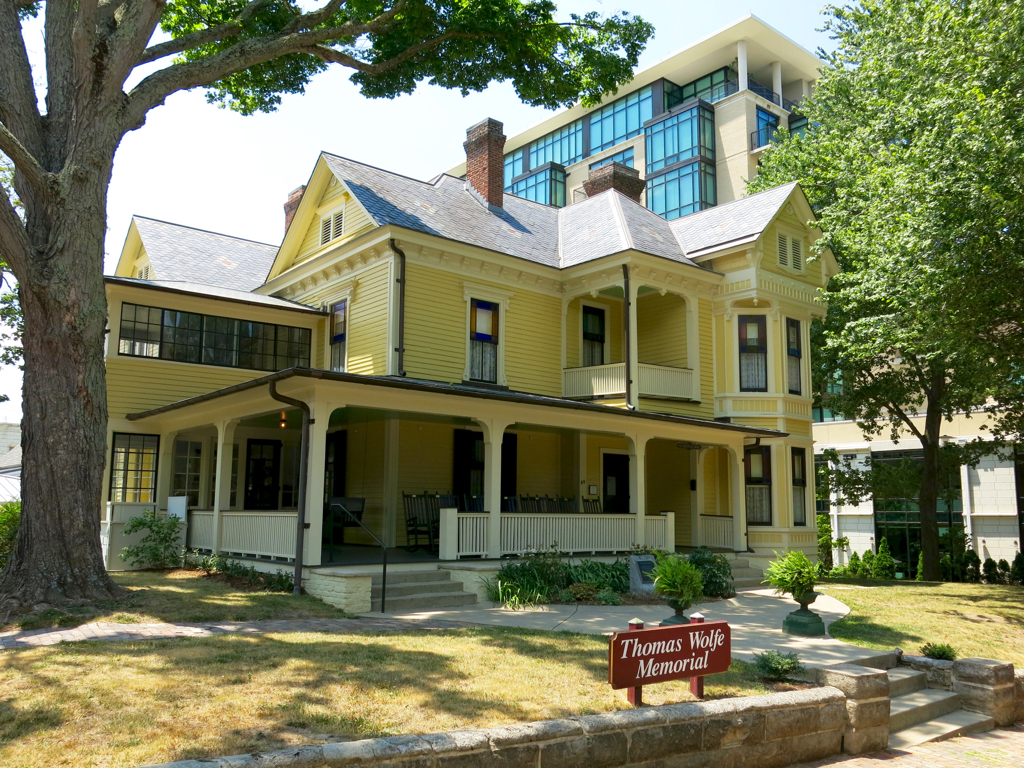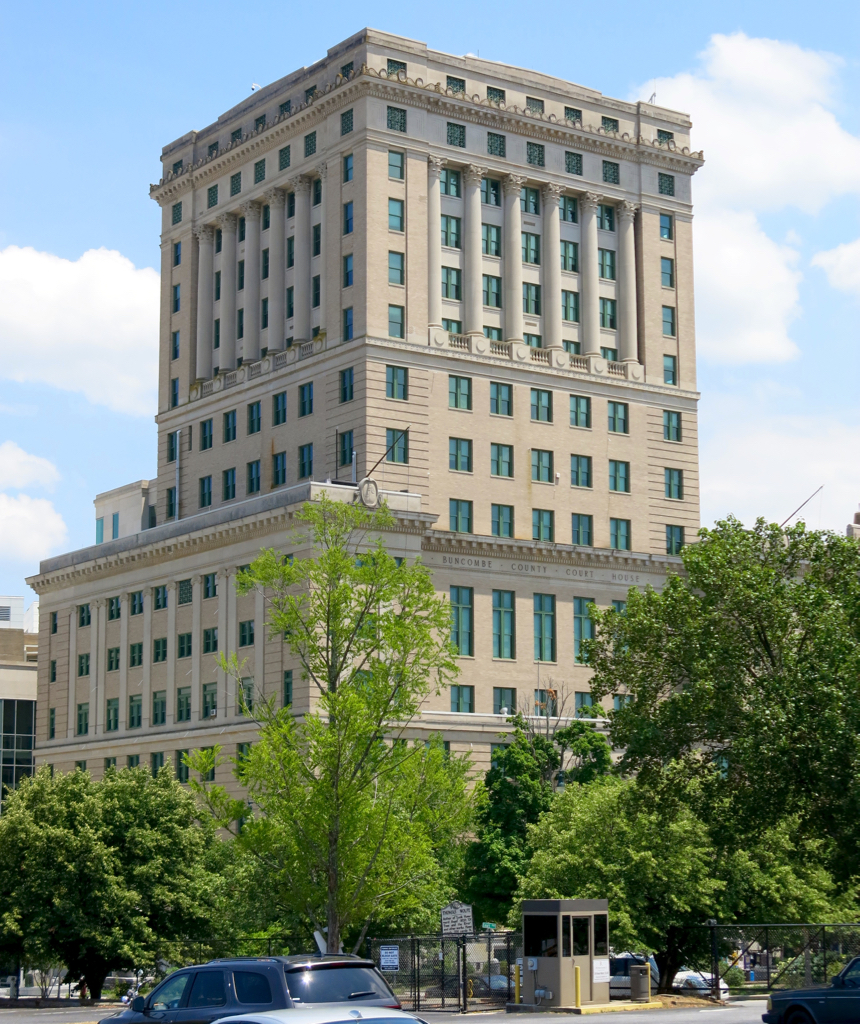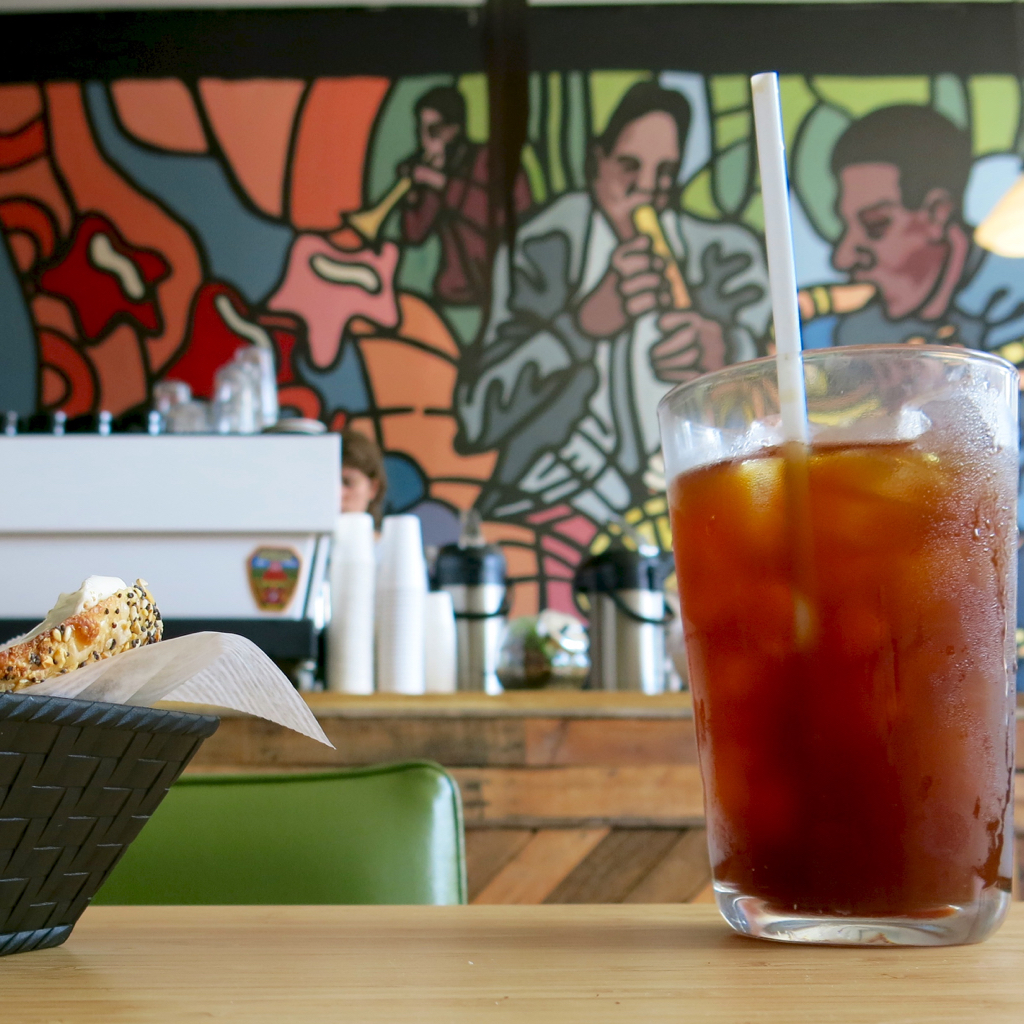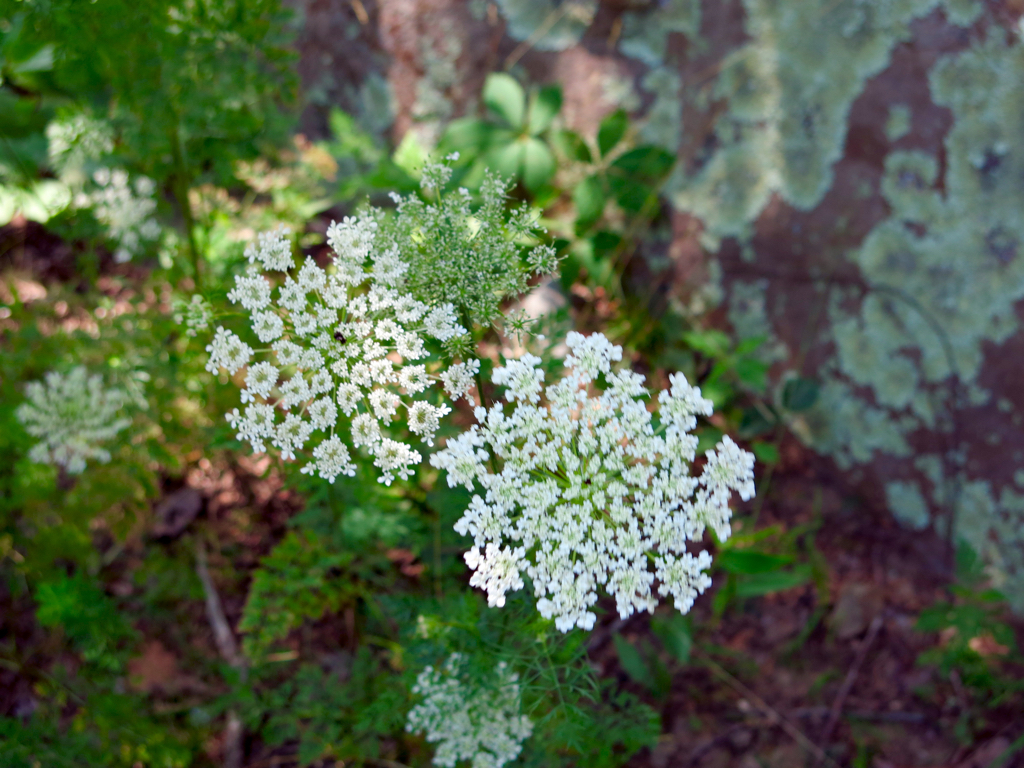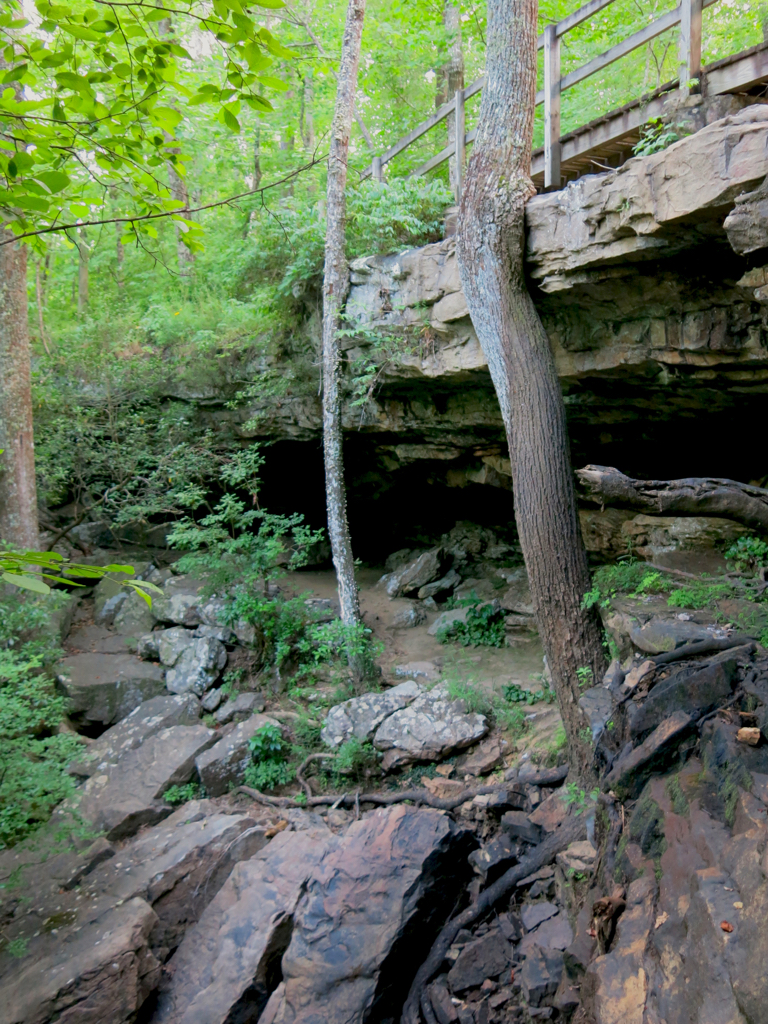De Soto State Park proved to be a disappointment: no water in the water falls, hikes that were hot and buggy, and loud people driving around the campground at 1:30 in the morning. We decided to leave; the park staff were nice enough to give us a refund for the second night, and we changed motel reservations so we will have only a six hour drive on July 4, instead of an 8 hour drive.
On our way out of the park, we stopped to see DeSoto Falls, which had just a trickle of water plunging down into the limestone canyon.
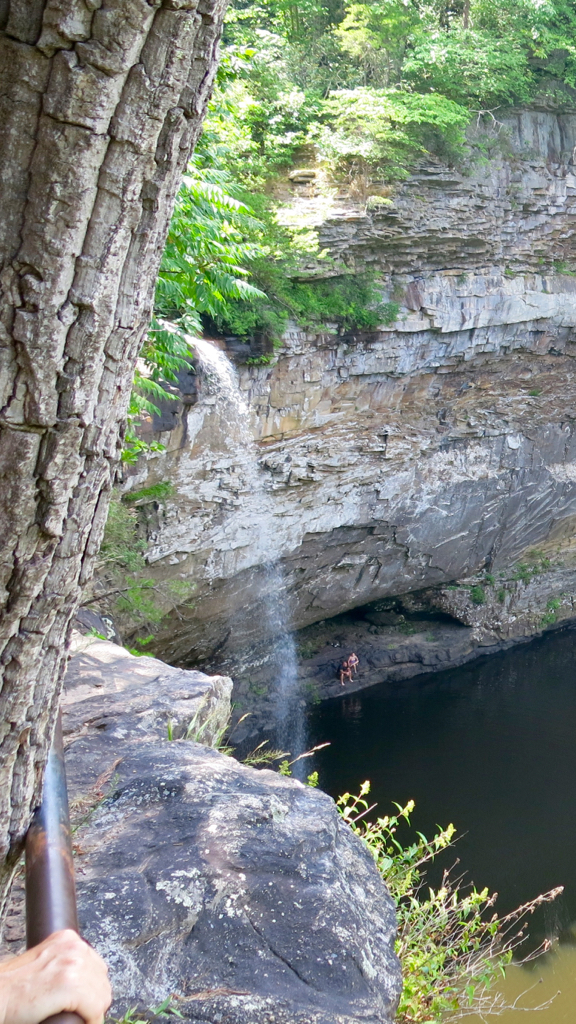
An older man and woman, perhaps in their seventies, were standing next to us looking at the falls. We all agreed that it would be more impressive if there were more water. The woman was focused on taking photos of the falls, and of the swimmers in the pool far below, but the man was willing to talk. When he had been a Boy Scout, maybe twelve or thirteen years old, his troop hiked all the way up the canyon to the falls, a four- or five-day trek. Some of the adult leaders stayed on the rim of the canyon, and using ropes dropped supplies down to the troop. Carol exclaimed that that was a really good Boy Scout troop, and I said, that’s the trip of a lifetime. Yes, he said, memories that lasted his whole life.
Carol wanted to go to the Sacred Harp singing in Henegar. We drove down off Lookout Mountain, where the park is, into the valley, and then drove up Sand Mountain, where Henagar is. We found Liberty Baptist Church, and I left Carol to sing and eat lunch. She urged me to join her, but after the death of my father two months ago, and my mother’s twin sister a month ago, somehow I didn’t want to sing much of anything.
Instead, I drove around and looked at all the small roadside churches that you find in that part of Alabama. In less than an hour, I drove past a dozen churches — Several different varieties of Baptist, Methodist, Holiness, and a couple that I couldn’t tell what kind of church they were from the name. I lived most of my life in New England, where the churches are most often in town centers or villages. But in this part of the world, most of the churches are out in the middle of nowhere, sometimes at crossroads and sometimes just along an empty stretch of road. I stopped to admire the Happy Home Missionary Baptist Church, a neat and tidy brick building at the intersection of U.S. Highway 40 and County Road 162 in Jackson County. One of the signs out front read: LIFE IS FRAGILE HANDLE WITH PRAYER, and a smaller sign read: Celebrate Recovery Mondays at 7:30 PM.
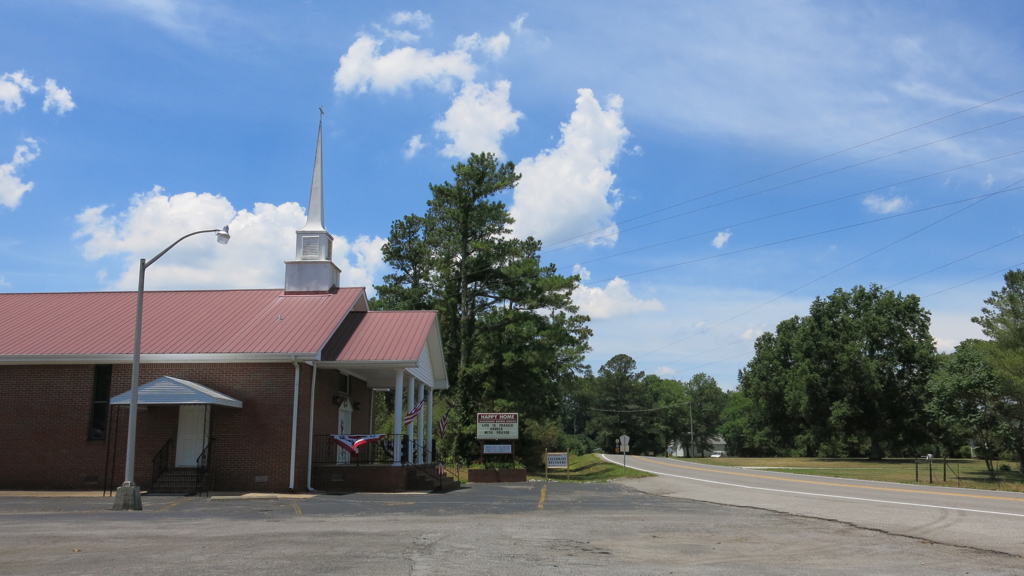
If you’re a tourist, you’re supposed to admire the old, weathered, broken-down and picturesque church buildings that are no longer used as churches, like Dean’s Chapel down the road from Happy Home Church; I admit to being a bad tourist, because I passed Dean’s Chapel by, spending my time looking at Happy Home Church and imagining how it is used and who keeps it so neat and who drives the two twelve-person vans in the parking lot.
When we got into North Carolina, the scenery grew more dramatic, to the point of being awe-inspiring. Mountains do that: they inspire awe. Mountains in western North America are twice as high, and much craggier, but the Appalachians inspire just as much awe, and maybe even more. To think that huge glaciers ground over the tops of these mountains during the last Ice Age! And the trees that clothe their sides, and the narrow winding roads that adorn them, give you a sense of how big they are in relation to humans, and the blue haze of the humid eastern atmosphere gives a sense of distance, and you get a visceral sense of just how much bigger these things are than puny human beings.
From the sublime to the ridiculous: We were winding along the interstate highway through the foothills of the Appalachians, and I was reading aloud to Carol — Evelyn Waugh’s Scoop, a sardonic satire of Western cultural imperialism unfortunately marred by unconscious racism — when she suddenly exclaimed, “An ostrich!” Two ostriches rode in a makeshift ostrich-hauling trailer. The trailer lurched and swayed, and the ostriches looked very uncomfortable, shuffling about trying to keep their balance. As we passed the trailer, I could see a baleful, worried eye looking out over the side of the trailer towards the mountains.
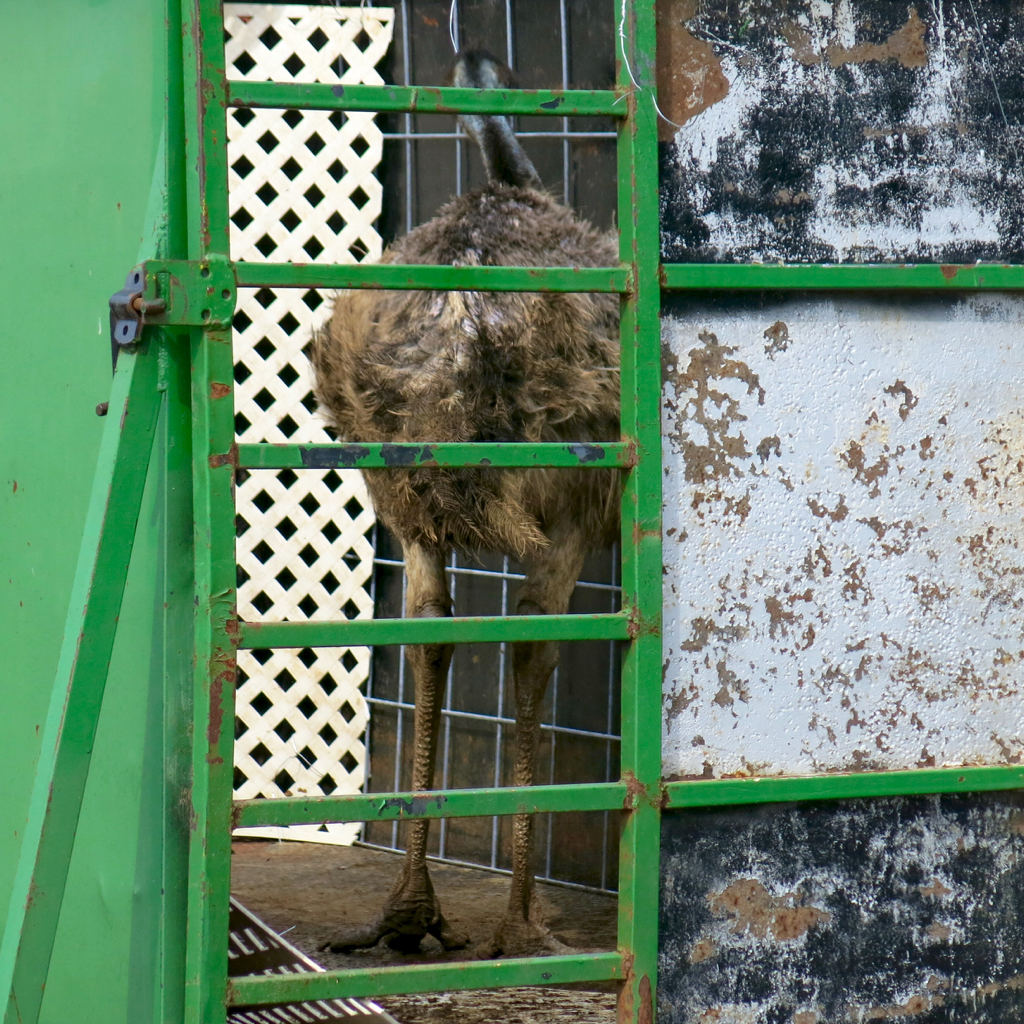
We stopped to eat dinner at a Thai restaurant just off the interstate in Knoxville. The evening was pleasantly warm, so we asked to sit outdoors to eat. There wasn’t much of a view: a scraggly tree, some rooftops going down the hill in front of us, a huge parking lot off to the left. I heard something that sounded like a huge crow with asthma, and Carol pointed and said, “Look!” A Great Blue Heron flew low over the rooftops in front of us, making its croaking call, flying over the parking lot to the left and into the distance. What was a heron doing here? Carol wanted to know. I hemmed and hawed and said, Well there’s a river that flows through town, maybe it was flying to or from the river; but a primitive part of me thought it was an augury, a good omen.

